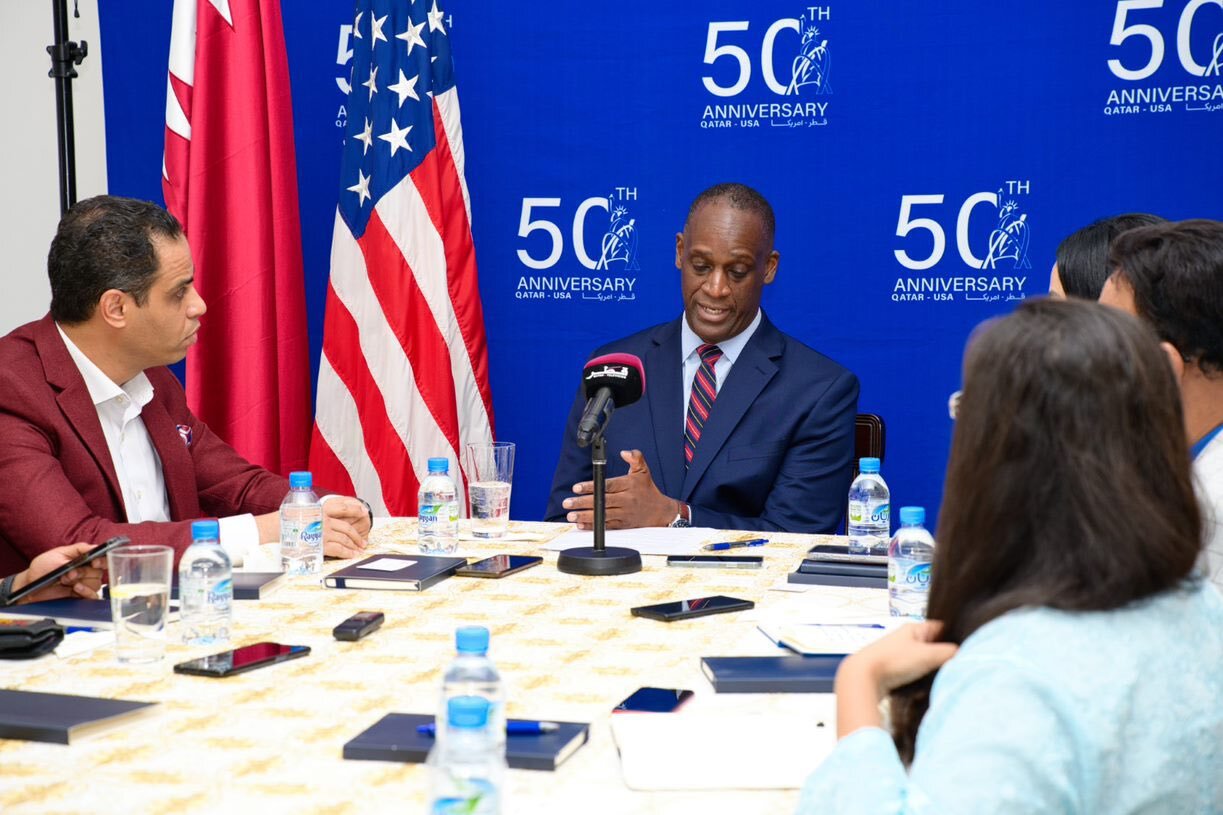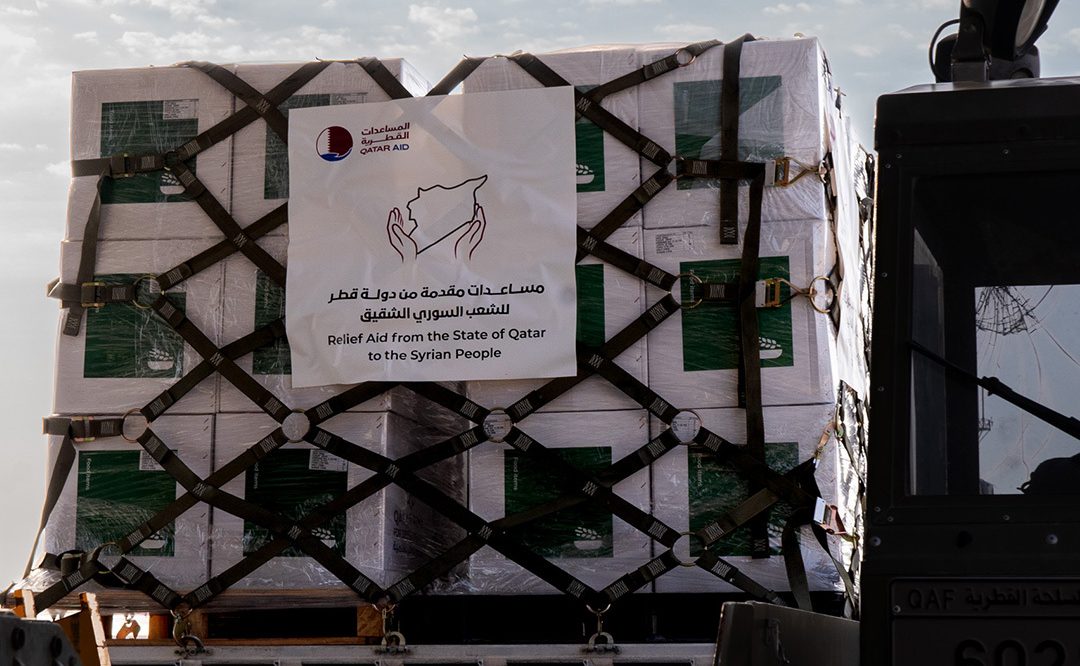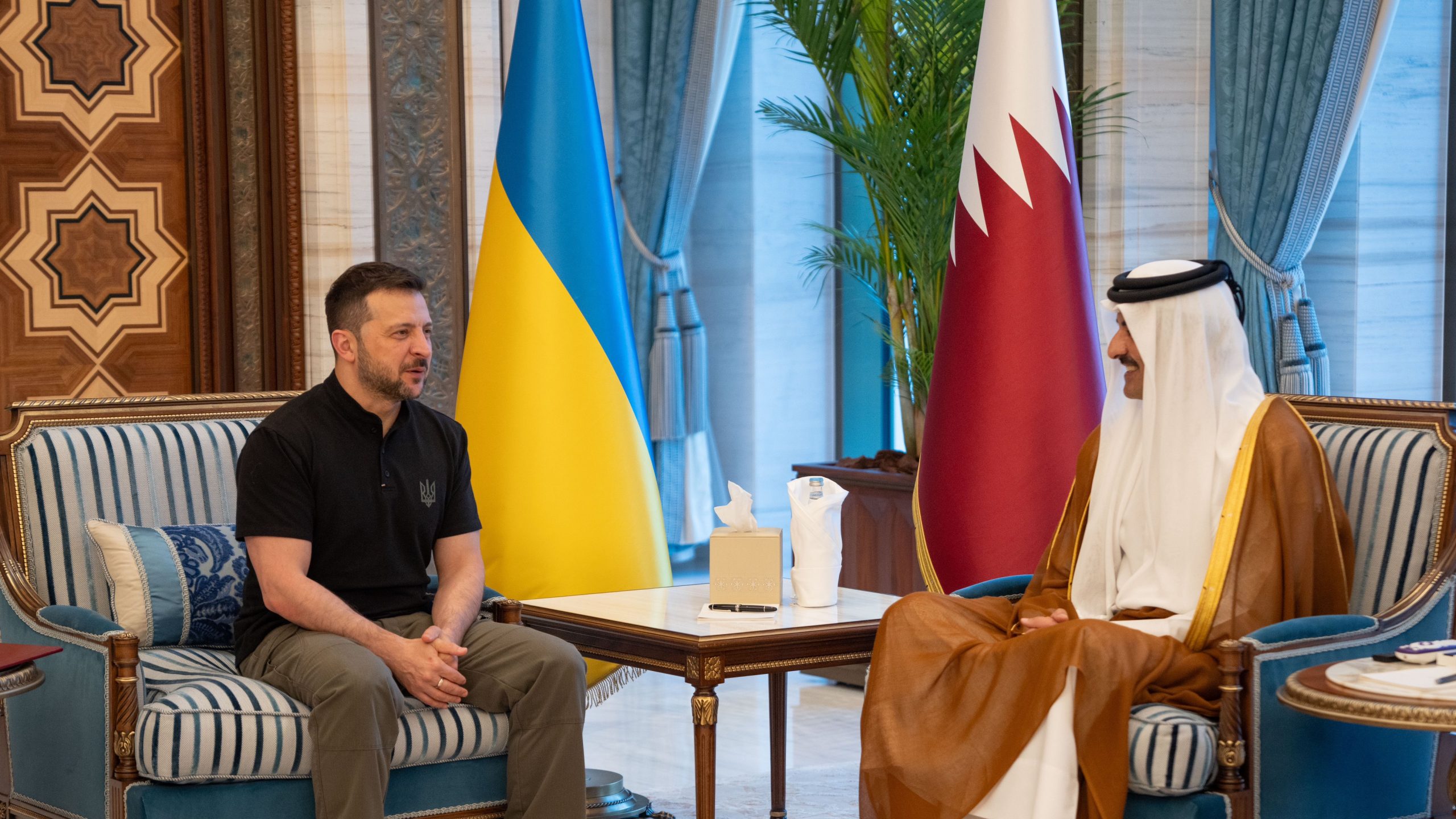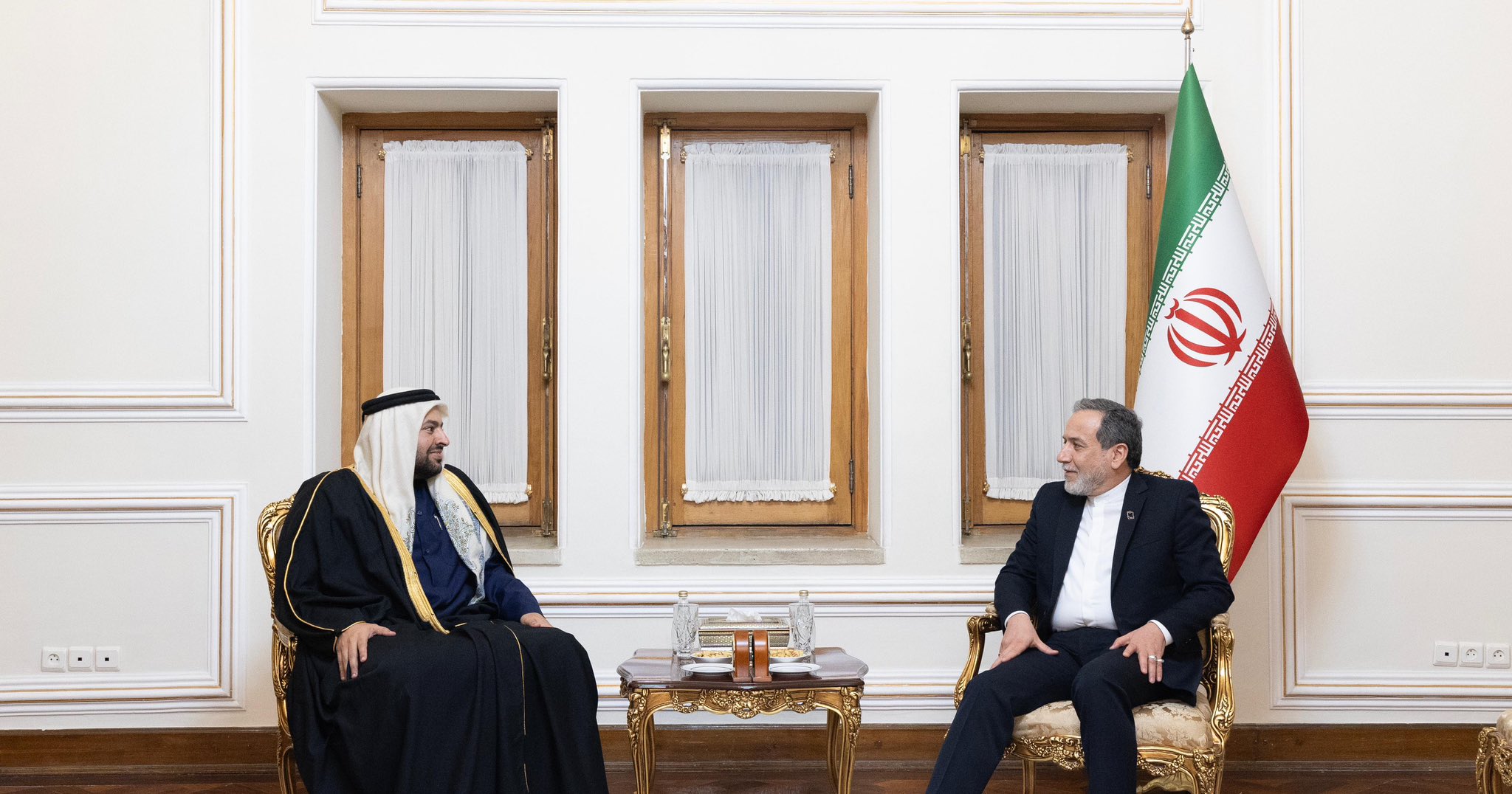A number of embassies have continuously warned fans that they could face punishment for behaviour that may be tolerated elsewhere.
Over a million football fans are anticipated to visit Qatar during the month-long World Cup, and the United States ambassador to Doha has urged police and authorities to manage them with patience, tolerance, and openness.
“We want to make sure that law enforcement […] is in the right place. We want to make sure that in the ministries there is a level of patience and tolerance for what the world brings when you invite the world to your country,” Timmy Davis told reporters on Tuesday at the American Embassy in Doha, describing his discussions with Qatar’s authorities as “vibrant”.
The US mission and others have warned fans of potentially facing punishment for behaviour that would otherwise be condoned elsewhere, with the tournament’s organisers not yet publicly explaining how they will enforce the law during the competition.
Drinking in public places in Qatar could lead to a fine of up to QAR 3,000 or jail term of up to six months. It is also prohibited to display public affection or wear revealing clothes not in line with Islamic guidelines.
“When you host a global event like this and you invite the world to come, you need to be open to the world and you need to be transparent in the ways that you’re going to take care of visitors,” said Davis.
This comes as the US football team on Tuesday joined six other World Cup participants, including England and Wales, as well as four significant tournament sponsors in publicly supporting a campaign calling on FIFA and Qatar to pay compensation.
The #PayUpFIFA campaign is a collective appeal by human rights groups for FIFA to match the tournament’s $440 million in prize money with compensation for migrant workers.
FIFA stated at the time that it was evaluating the campaign, and that as of December 2021, workers had received compensation payments totalling $22.6 million, with an additional $5.7 million pledged by contractors.
The US is set to jointly-host the FIFA World Cup in 2026, alongside Mexico and Canada, and has already received criticism for a range of issues at home, including lax gun control that has seen a worrisome number of school shootings, violence against people of colour, separation in families as a result of US Immigration and Customs Enforcement’s (ICE) stringent laws, as well as widespread homelessness.
Lenience during the World Cup 2022
Though Qatar’s enforcement plan is yet to be finalised, World Cup organisers, however, could lean towards a more flexible approach when it comes to fans committing minor offences, sources revealed last month.
World Cup fans visiting Qatar for the much-awaited tournament may not face jail for committing minor offences, a source familiar with the matter told Reuters.
The report cites officials from the Supreme Committee for Delivery & Legacy [SC] who reportedly assured diplomats and police from various countries taking part in security operations that they plan to show flexibility for relatively minor infringements.
“Minor offences won’t result in a fine or arrest, but police will be instructed to go to a person and ask him or her to comply […] someone who removes a t-shirt in public will be asked to put it back on. There is some sort of tolerance,” a person familiar with Qatari security briefings told Reuters last month.
The latest position suggests that Qatar is attempting to strike a balance between upholding religious customs while still tolerating more than the expected exuberance of a million football fans.
Defying laws and policies related to safety, however, will not be tolerated.
World Cup organisers have briefed diplomats on police plans for stronger action when the safety of people or property is threatened, according to numerous diplomats.
Even if there are no significant injuries, fans who engage in behaviour, such as using flares or fireworks that could cause damage or getting into a fight, risk fines and the cancellation of their Hayya card – which allows them to enter Qatar and stadiums.
“Change is part and parcel of hosting people from all over the world … in a big burst like a World Cup,” Davis said.







